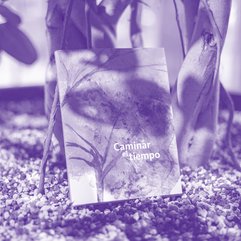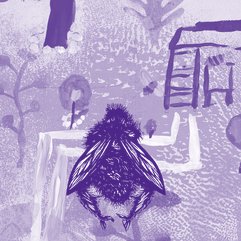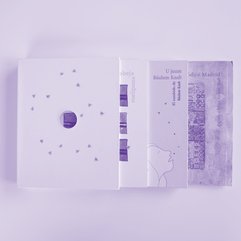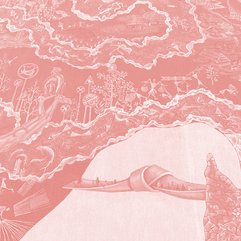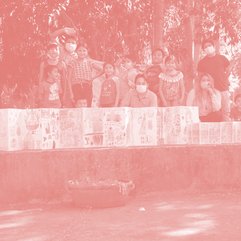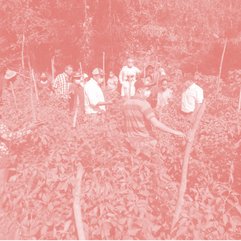Bīja
the spinning wheels of freedom
Opening Hours
Thursday: 3 p.m.-8 p.m.
Friday: 3 p.m.-8 p.m.
Saturday: noon-8 p.m.
Sunday: noon-8 p.m.
Save the Date
all ages welcome
multilingual

Contributions by: Navdanya, The People’s Archive of Rural India (PARI), Mayur Vayeda and Tushar Vayeda
Spore’s Cabinet will be celebrating the seed as the fundamental unit for life, a symbol of care, and a depository of generational knowledge. The cultural artifacts it will include are part of our ongoing dialogue and collaboration with Navdanya, an agroecological initiative led by veteran environmentalist Dr. Vandana Shiva, who’s worked for decades on reviving and strengthening care work of women as guardians of earth and opposing globalized use of genetically modified crops. Navdanya, means “nine seeds”, representing the nine crop varieties that are essential to community food sovereignity.

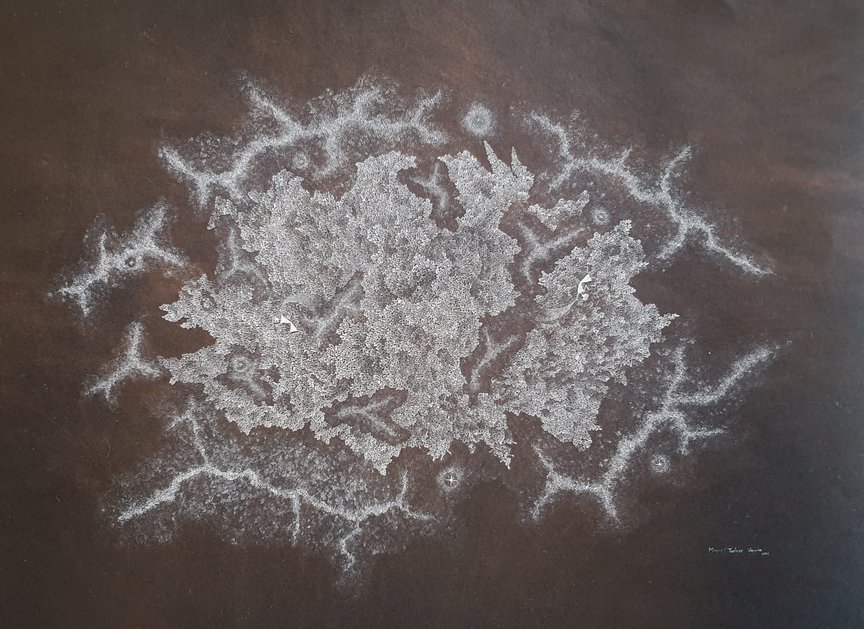 Birth of Seed Story
Birth of Seed StoryThousands of seed varieties have disappeared from rural India in the last few decades, while more and more farmers are dependent on seeds protected by intellectual property laws. In this exhibition, a video interview will present the women-led initiatives of Navdanya, regenerating thousands of years of rural wisdom through songs, stories, and prayers to protect seeds and restore biodiversity. Here, women share stories on the relationship the people have with the seed, with nature, and with each other, emphasizing that this relationship must be based on interconnectedness.
In addition to video interviews, the Cabinet will resonate with a song brought to us by The People’s Archive of Rural India (PARI). Sung by the women of rural Maharashtra, these devotional poems express deeply personal couplets on agriculture, rural politics, and society. The idea of recording these songs comes within a context of neglect from mainstream media and cultural platforms, which fail to engage with rural female population. Women farmers in Maharashtra comprise nearly half of the workforce in agriculture while they own less than two percent of agricultural land. Apart from reviving these lost songs, PARI’s project is an insightful look into their lives and labors, covering a range of subjects from personal relationship within the family to caste equations in the community.
The Cabinet walls will be adorned by a commissioned mural by sibling artists Mayur and Tushar Vayeda, representing a Warli Adivasi (Indigenous) story on the birth of seed, rendered in the distinct traditional Warli painting method. In this tradition, the seed is the basis of all life forms, embodying millennia of evolution and thousands of years of selective breeding, as well as the culture of saving and sharing seeds. The mural resembles a prehistoric cave painting; a visual depiction of the primordial creators of the world. When Mahadev and Ganga Gauri, the creators of the world, decided to form the earth, they collected and created new seeds of life: seeds of creatures, plants, water, and soil. The artists adapt their inherited style of painting, while remaining deeply connected to its origins, allowing their concepts go far beyond to address universal concerns on seed protection.
The title of the exhibition is inspired by the words of environmental leader, eco-feminist, and founder of Navdanya Dr. Vandana Shiva. Dr. Shiva tells us that when Gandhi picked up the spinning wheel, he understood that the colonization of the Indian subcontinent was related to forced cultivation of cotton and indigo, whereby the colonized are not in control of the production of their own textile. By spinning his own yarn, he simultaneously performed a gesture of liberation through the re-appropriation of this technology. Dr. Shiva asked herself: What are the spinning wheels of today, what is the key industry that establishes a new bio-imperialism through the biotechnological control of patented genetically modified organisms (GMOs)? The seed, as the first link in the food chain, must be this re-appropriating spinning wheel that spins a future of liberation from control, loss and exploitation.




